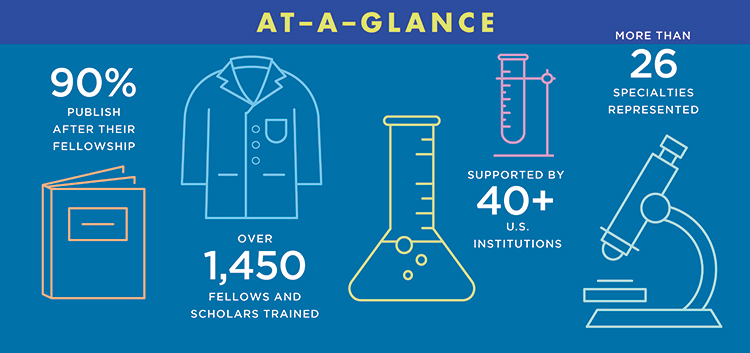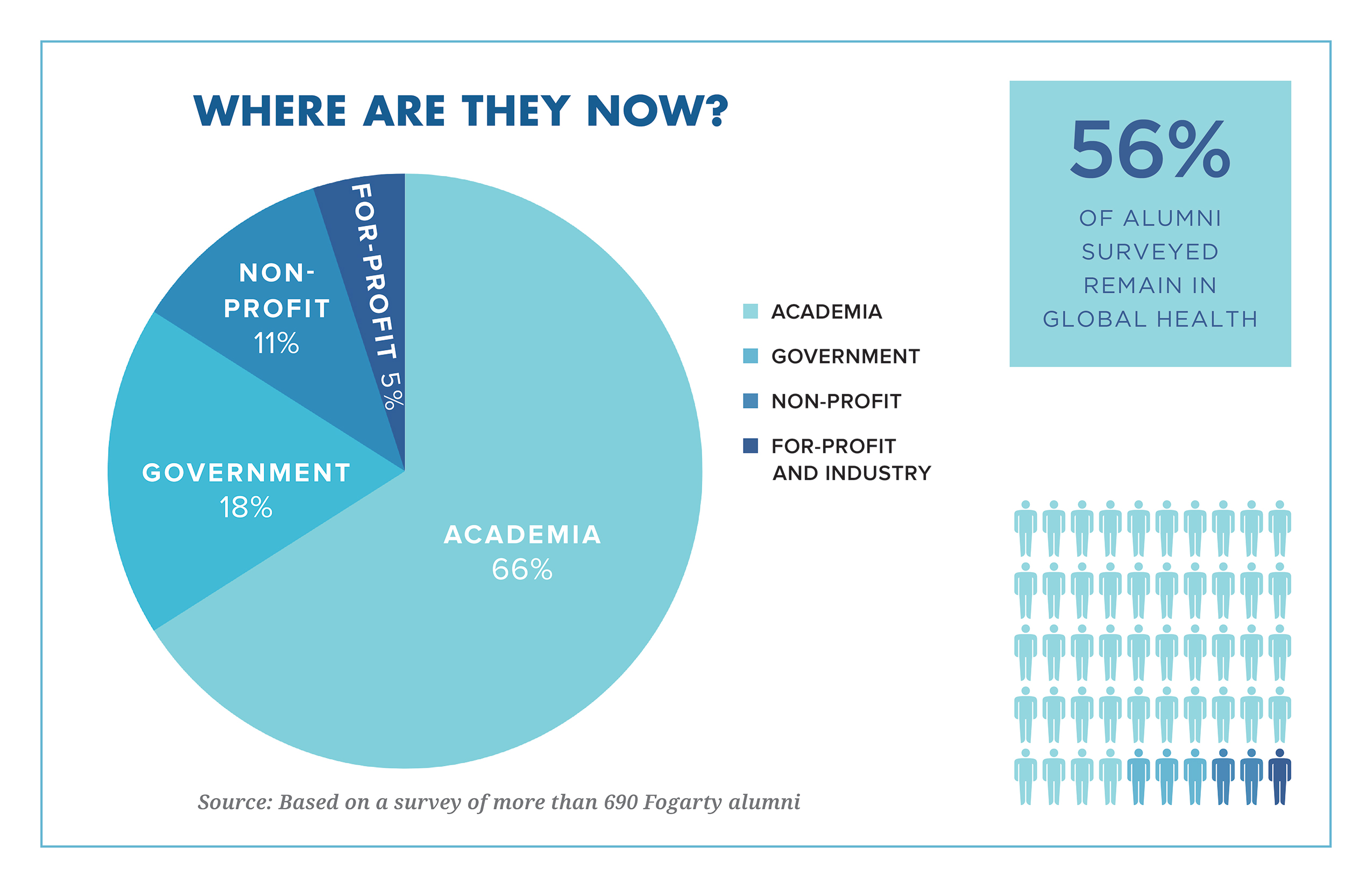Fogarty conducted an evaluation of the
Global Health Fellows and Scholars Training Program (now known as LAUNCH). The review of the Fellows and Scholars (F&S) Program was guided by the Fogarty International Center framework for program assessment and key elements highlighted in the program’s various notices of funding opportunity (NOFOs) issued for this program.
In addition, Fogarty key staff were consulted to develop a plan for data collection, survey development, and/or analysis. Former grant recipients who have done similar trainee surveys were consulted in the question development and survey phases. All data were collected and analyzed by Fogarty staff in the Division of International Science Policy, Planning and Evaluation.
Summary
Ahead of the
20th anniversary of the Global Health Fellows and Scholars Program, Fogarty set out to understand the long-term outcomes and impacts of the program on the careers of its trainees. Alumni were surveyed to collect both qualitative and quantitative evidence of their experience and the impact it had on their career trajectory.
This report describes the results of the review, including a survey of past trainees. The report provides a description of the methods used to collect and analyze data); the programs’ history, evolution, and portfolio of grants; trainee results during and after the training year (Section 3); and a summary of the major findings, including recommendations for future iterations of the F&S Program.
Program Impact
Ensuring an equitable experience
As part of Fogarty’s goal to build future leaders in global health research, the Fellows & Scholars program has always included trainees from both the U.S. and low- and middle-income countries (LMICs). In earlier iterations of the program, LMIC participants were only able to work in their country for the duration of their project. To ensure a more equitable training experience, the LAUNCH program now brings LMIC trainees to the U.S. for short-term research training experiences.

A catalyst for global health careers
When surveyed, the majority of alumni who responded (56%) indicated they continue to work in a career pertaining to global health. Of these, many have become true leaders in the field holding positions while alumni have gone on to work for government organizations like WHO, UNICEF, UNAIDS, CDC, NIH, icddr,b, and the Kenya Medical Research Institute (KEMRI).

Click on image to enlarge
Updated May 14, 2024